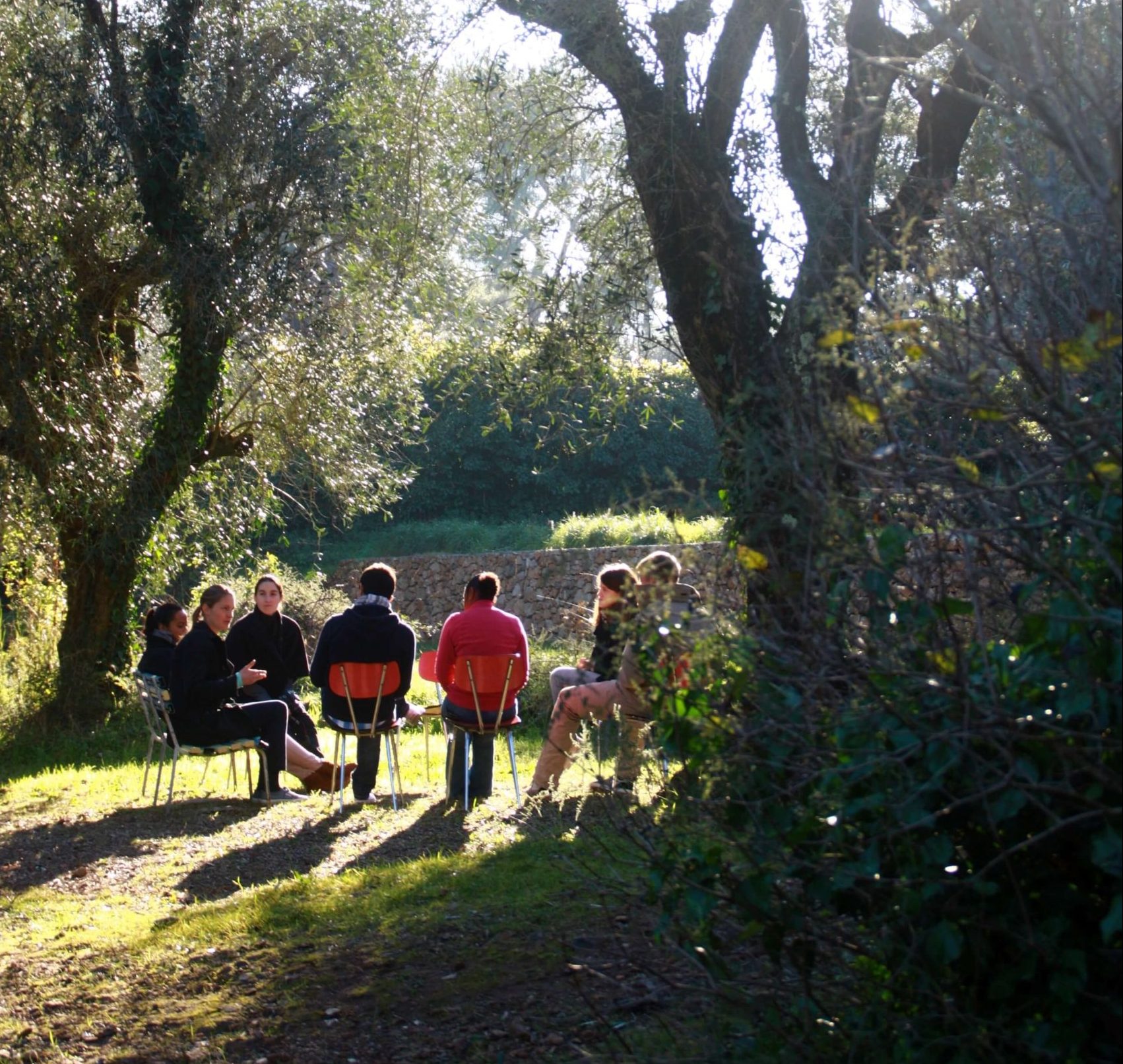Use your gifts on an English ministry team
English ministry:
- to fulfill the Great Commission right where you live
- to meet internationals among us from dozens of different countries
- to serve like Jesus… language is power and when we humble ourselves to empower others we are a picture of Him (Philippians 2:5-11)
- to build friendships naturally through conversation after conversation
- to point to God in action and word

Do I have to be a teacher?
Teaching is an important role in English ministry, but it’s not the only part. It takes a team (hmm… sounds biblical! 1 Corinthians 12-14). English ministry is actually small group ministry… each class functions as a small group.
The roles on this team depend on the goals. And goals can be shared between 2 people or a dozen.
So here are the key goals of English ministry, how would you like to share them with others on your team?

Intentional prayer strategy (for everyone): life is too short to waste time doing things in our own strength. We develop a prayer strategy so we can pray regularly (ideally every day) by name for our students. Praying with someone else (a spouse? friend?) is even better.
Without prayer we are trying to minister in the flesh.

Behind the scenes coordination: this vital function includes things like keeping contact information straight, helping with English books and supplies, arranging for meetings, and more.
Without administrative support the team will waste valuable time and even miss things… making it harder to be the hands and voice of Jesus.

Quality English instruction: we want to show them grace at their point of need. This is also our most common opportunity to meet internationals.
Without quality English instruction students will stop coming and – even worse – our method goes against our message.

Spiritual intentionality: English ministry is more than being a social agency, and so we strive to be spiritually intentional in and outside the classroom. Because the English ministry exists in an ecosystem of other ministries, we are relieved of pressure to “get to the gospel” prematurely. We plow heart soil with love, sow seeds of God’s word, and look for spiritual openness. All this time we are praying for each individual about what opportunities outside of class could be a helpful next step.
Without spiritual intentionality we are just a social welfare organization.

Relational investment: whenever we have the opportunity, we want to invite them to move from transactional service to friendship. This takes our ability to embody Christ’s love to another level.
Without relationship we are just a program or transaction and fail to follow the life on life model Christ gave in the gospels.
Level 3 Class example: Carla, Bob, & Jackie
- Prayer: Carla, Bob, & Jackie meet once on the phone each week on a non-class day to pray by name for their students. They each also try to pray each day for their students (though they’re not perfect about praying every day).
- Serving through English: Carla and Bob serve as co-teachers
- Relationship: both Carla and Bob still work full-time, but Assistant Teacher Jackie is retired and loves to open her home to the team and students once a month. Carla and Bob still try to connect relationally as much as possible during the school times. They have divided the list so that Bob reaches out to the male students each week and Carla and Jackie reach out to the female students each week.
- Spiritual intentionality: In-class, they have a brief lesson on a bible verse each time. Since they have several Muslims in their class, they try to remove barriers by limiting their scripture selections to the parts of the bible the Qu’ran affirms: Torah (Gen-Deut), Psalms, & Gospels. They usually use the NIrV since it’s faithful to scripture but uses English that is easier for level 2 learners to understand. They always ask for volunteers to read the verse they’ve chosen. Then they ask what questions the students have about meaning or pronunciation. They take note of who volunteers and who asks what questions. Outside of class, they are praying about which student they might invite to come with them to an outreach bible study like dinner & discussion.
- Behind the scenes administration: all of them are comfortable with administrative things and have divided them up to share.
- Coordination: Carla and Bob feel maxed out with their teaching roles, and Jackie does not mind coordinating things for the team, so she serves as the team’s leader.
Foundations Class example: Brad, Jane, & Ethel
- Prayer: Brad prays for his students every day by name. He considers them a core part of who God has called him to minister to this season of his life. He has not seen any signs of spiritual interest yet, but he remembers the story of a refugee who experienced love from Christians over a long period of time before responding to the gospel. This gives him encouragement to pray with hope. He also tries to pray with his wife once a week for his students by name.
- Serving through English: Brad is a veteran teacher and retired but is the only volunteer on this team. Link/ESL ministry leaders are trying to recruit at least one more volunteer to serve with him, even if it’s just as an Observer who can start on the path to teaching. He is also thinking about which friend of his that he could invite to join him in serving in this way.
- Relationship: because of lesson planning, Brad does not have much time to spend time with his students outside of class. He does try to reach out to each once a month or more frequently if he can. He is also talking with his wife about one time during the semester that they might be able to invite the class over to his home. His old childhood Sunday School teacher, Ethel, helps him by sending hand-written cards from Link to students that have missed class.
- Spiritual intentionality: Brad has taught Sunday School at his church for many years, but struggled to create devotion times that are simple enough for his Foundations students to grasp. He has recently started using an “ABCs of God” ESL book. For outside of class spiritual intentionality, Brad has asked the men in his small group if any of them would be willing to have one of his students over for Thanksgiving, Christmas or Easter family meal.
- Behind the scenes administration: Brad’s wife Jane is a bit nervous about interacting with internationals (she’s afraid of not knowing what to say), but she shares Brad’s vision for the nations and loves to lend her help with administrative things. She makes sure that new students are welcomed over text/email, she updates the student records when necessary, and is thinking about coordinating a class outing.
- Coordination: Brad sees his role as the team leader as an encouraging and coaching role. He checks in with Ethel & Jane once a month to tell them stories about individual students and to see if they need anything in their volunteer roles.
Advanced class example: Jill, Tabitha, Jed, Erin, & Alicia
- Prayer: Jill & Tabitha both work full time and have found it hard to pray together, mostly because of schedules. So they pray for each student by name on their own every day. Alicia, though she works on ESL class days, joins the others when they meet to pray and she also prays on her own for the students by name.
- Serving through English: Jill & Tabitha have different teaching styles and are both relatively new to teaching ESL. So they have decided to take turns… one week Jill teaches, and the next week Tabitha. They’ve found this is easier than trying to both be a part of the teaching each week. Tabitha in particular is a great listener and tries to get feedback from the students on what English successes and challenges each student is having. She shares this with Jill and they sometimes will follow up afterwards with those students to give resources or other support.
- Relationship: Jed is an Observer committed to their class. He may teach in the future when his school load is not so heavy. Right now, he particularly wants to connect with male students in the class (there are 2). He takes care of all the follow-up and tries to get together with them at least once a month to hang out. Jill & Tabitha are hoping for another team member who can help connect with the females in the class.
- Spiritual intentionality: Jill & Tabitha are both a little nervous that they will get spiritual questions that they can’t answer from these Advanced level students so they’ve asked observer Jed to occasionally give a brief devotion since he has more experience teaching the bible. Jill & Tabitha also try to find natural ways to use scripture in the actual English lessons rather than have a separate “devotions” time. For outside of class intentionality, they are each on the lookout for a church-sponsored activity other than a worship service that might be a good way for one or two of their students to meet more Christ followers.
- Behind the scenes administration: Erin lives out of town, but used to be a part of International Link (teaching with Jill) and still has a heart for the internationals here. She helps out in whatever virtual ways she can, including helping students order books, reaching out to students who miss class, and updating student records.
- Coordination: none of them feel like they have a leadership gift, but Jill does not mind coordinating, so she is the team point of contact to make sure things don’t get missed.
Frequently Asked Questions
Can I invite others to volunteer with me?
Yes, please do! Your Sunday School class, family, or others could be a great addition to the team. If they will have contact with internationals or their personal information, they will need to go through the normal volunteer application process.